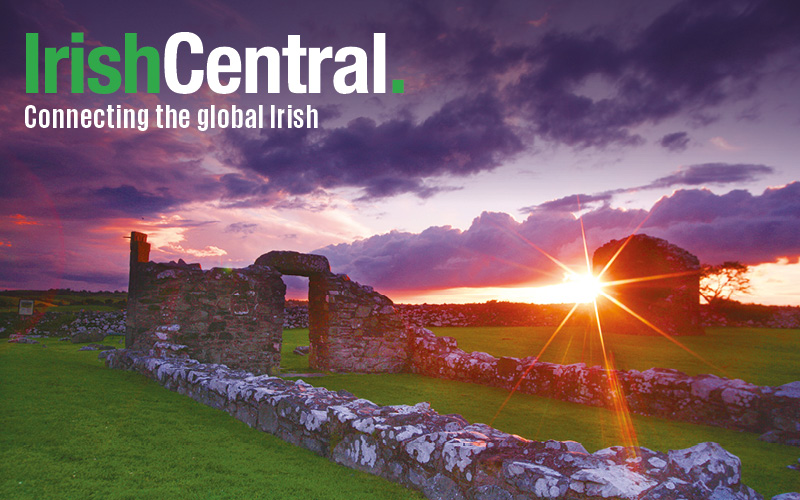And one saw mud,
And one saw stars."
That old saying, which my mother used often when hard days came along, flickered into my head recently when I read the dark enough piece in the Irish Voice about the decline of rural Ireland from my friend and former Dublin newsroom colleague John Spain.
I have huge respect for John, who was one of my many news desk directors for years when I served as The Irish Press man in the west. I always read his Irish Voice columns with keen interest since, and recently wryly confessed here that I reluctantly enough find myself driven to agree with many of the points he makes about the current state of the Irish nation.
John has a sharper and more precise take on our social and economic realities than I have. The facts and statistics and figures with which he nailed down his article about the rapid decline of yesterday's rural Ireland, and it's special qualities, quite shocked me as I read them. I cannot contradict or challenge any of them.
It is another fact, I think, that many of you, down the years we have been sharing pages here, could be forgiven for believing John and I were reporting from different countries and cultures. Here is MacConnell, from the deep west, retailing some kind of wit and misted whimsy, and there is Spain, based on the other coast, nearer the corridors of power, factually reporting the sharper realities of the way it really is for us in the 21st century.
Yes, beyond doubt, the dreadful economic recession for almost the past decade has crucified the provincial populations in a development which has been under-reported for the most part. When John talks about the closures of bank branches and post offices and police stations and services generally for the 40 percent of the people who still live in the countryside he is totally accurate.
Smaller schools and hospitals have closed, and many hamlets and villages have lost their crucially important crossroads stores and filling stations. Thousands of country pubs that once served as community centers as much as anything else have closed down.
Emigration of our best and brightest youth is still rife. There is a continuing drift from the rural areas to the cities and larger towns. The old patterns of country living are changing by the day.
Yes, equally beyond doubt, a fluid, strange kind of New Ireland is evolving. But that old saying of my dear mother keeps ringing in my countryman head, and I have to say as powerfully as I can that, living in rural Ireland as I have for the most of my life, I disagree with the totally bleak picture painted by the statistics.
Without any problem at all I see the bright stars of country life every day. Despite all the pains and pressures those stars still shine brightly.
There is resilience and courage and communal strength and craic aplenty to be found about everywhere if you know where to look.
I would suggest, for example, that any trip along any section of the touristic success (and communal success) that is the Wild Atlantic Way all along the West Coast from Kerry to Donegal will speedily prove my point.
A reality is that the largely agricultural communities in all the provinces down all the years always had to work hard against the odds to survive. The Roman Catholic monoculture that created large families on small mountainy farms always meant that emigration – or in more recent times migration – was a fact for many.
Many of the old rural rituals were enforced things. The charming country house dances and crossroads dances happened because there were no ballrooms or clubs back then.
Resilience and communality have always been necessary, and these qualities are still strongly present in the changing times.
Just one example of the way the country folk have reacted to the closure of their local police stations is the nationwide spread of Neighborhood Watch programs where neighbors keep a protective eye on each other at all times.
I had one of the best evenings of my life last month in a country pub in north Kerry. About every local I spoke with through the night had emigrant sons or daughters, many in the U.S., Canada and Australia but, dramatically, though they miss them a lot, they confidently expect they will return home eventually with priceless overseas work experience added to the good educations which they brought abroad with them.
That is a big change from the Mayo reality of 70 years ago related by John Healy in one of his splendid books about the custom of emigrating families bringing a burning sod from their hearths to the neighbor's hearth fire "to keep it burning for us until we get back home again.”
Back then pitifully few of them ever reclaimed the flames of home. It is different now and the economy is improving already.
I know a number of bright young emigrants who have already returned home. The Kerrymen and women danced and played and sang the night away last month, and I could find the same spirit this very night inside one Clare hour if I were going out instead of sitting here saying that the rural plight is nowhere near as bleak as some of ye might be led to believe.
On second thoughts, it is still an hour before closing time. When I reach a high stool I will raise my glass in a respectful toast to our John Spain!




Comments